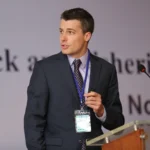Evaluating and Realizing the Value of Nature: Insights from the Changing Wealth of Nations database and examples from Indonesia
The Changing Wealth of Nations (CWON) series of reports provides a database and analysis of the world’s wealth accounts spanning 146 countries, annually from 1995 to 2018. It tracks human capital, a wide range of natural capital (including fisheries, forests, and mangroves), produced capital, financial capital, and more. The next version of the CWON database and report is currently in development. This presentation will look at key findings from CWON 2021 as well as discuss changes in the upcoming report. It then considers two examples of ecosystems valuation, conceptually linking wealth accounting to applied scenario analysis for informing policy. Examples are taken from Indonesia, which has a variety of initiatives underway to improve accounting of natural capital. The country has also embarked on significant investments in natural capital, including mangroves (towards a target of 600,000 ha restored or under improved protection by 2024), and forestry (towards net zero emissions from forest and land sectors by 2030). Ecosystems valuation – which demonstrates the considerable value of mangroves is a useful tool in the design of these investments.
David Kaczan is a Senior Economist at the World Bank, based in the Jakarta Office. He works on investment operations and research in the Bank’s Environment, Natural Resources, and Blue Economy Global Practice. He is an environmental and resource economist by training, and applies economic principles and empirical methods to topics such as oceans and fisheries, forestry and landscapes, water management, and ecosystems valuation. His work informs the World Bank’s support to Governments in the design and implementation of major investments in environmental protection and management. He is also an Adjunct Senior Research Fellow at the School of Business, University of South Australia. He previously lectured in natural resources economics at the University of Alberta, Canada, and worked at the Australian National research agency, CSIRO, on land and water management. David has a PhD in environmental and resource economics at Duke University, USA.
To register for this event, please write an email to events@global-solutions-initiative.org
Presentation slides for this seminar can be viewed here.
References:

